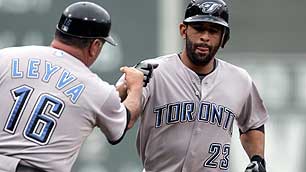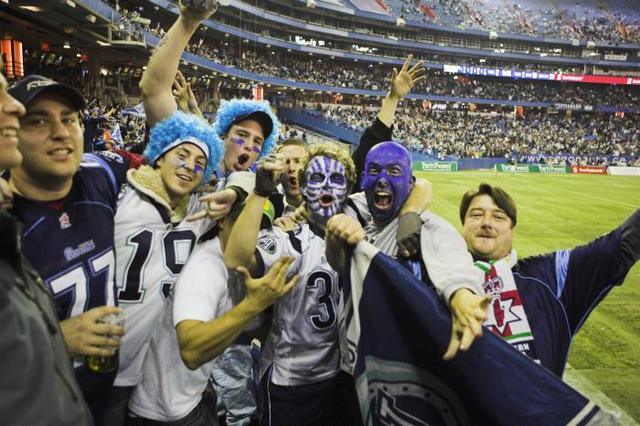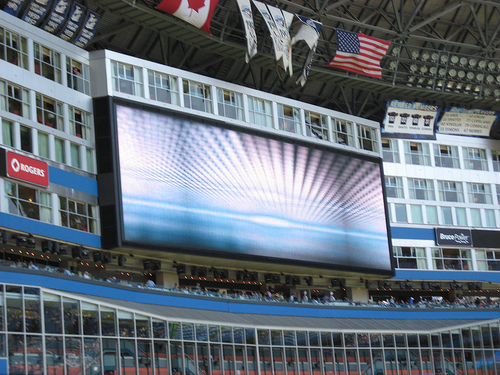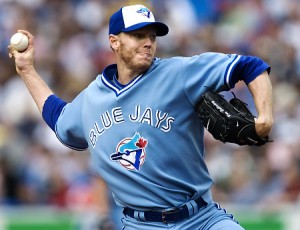An open letter to the Toronto Blue Jays
As I’ve mentioned previously, I’ve got a season’s pass for the 500 section of the Rogers Centre for all of the Toronto Blue Jays home games.
This is the fifth season that I’ve had the pass and it’s always a good purchase. The last two years have been particularly enjoyable since the Jays have been very good, particularly in the spring.
However, there’s a problem that creeps up every few games which bugs me. It happened at the last two games I attended and, frankly, I am fed up. So this morning I sent the following email to the Blue Jays:
Dear Blue Jays/Rogers Centre Staff,
I've been a Toronto Star Seasons Pass holder for the past five seasons. I enjoy going to the games and cheering on the Blue Jays.
However, I'm frustrated with my experience at the Rogers Centre and the lack of instant replay on close calls.
This was underscored by the games on Sunday, May 16 and Monday, May 17.
On Sunday John Buck hit a long ball that, from my vantage point in the 500s, looked like a grand slam. However, it was called a ground rule double.
To the umpires’ credit, they went into the dugout to review the play.
Unfortunately, due to the Rogers Centre policy of never showing a close call on the JumboTron, I couldn't see whether or not the officials were making the right call. I was robbed of the chance to judge for myself. I only learned that the umpires had made the correct call when I got home and saw the highlights on TV.
Similarly, at Monday's game, a close call was not shown on the JumboTron.
Lyle Overbay bobbled a throw from Jose Bautista, earning an error. He then threw the ball to third, which sailed past Bautista, earning another error.
Again, thanks to the Blue Jays' short-sighted policy of not showing close calls, I never saw that Overbay had mishandled Bautista's throw.
Instead, I had to rely on this morning's SportsCentre to learn that the umpires had, in fact, made the right call.
These are not the only examples of this frustrating policy, they're just the most recent.
It would do a lot to improve your organization's in-stadium product if you would stop protecting your players and the umpires from the occasional round of heckles.
Please start showing replays of all plays - even if they're close or controversial - because it greatly increases the enjoyment of the game for your audience.
Sincerely,
John
I’ve discussed it with some of my friends and co-workers and have learned that the policy is a passive directive from Major League Baseball’s head office.
The Toronto Star’s Richard Griffin summed it up last Wednesday:
“It is in fact a recommendation from Major League Baseball that teams not show a) close ball-strike replays; b) close plays that may incite the crowd against umpires; and c) plays that are under review i.e. home run calls. Now not every team abides by that rule, although all do on balls and strikes, but the Jays are good, responsible corporate citizens and do not show close calls on the replay board. I disagree because why should fans sitting at home know more about the game than those in the ballpark?”
Obviously, I agree with Griffin’s sentiments.
I would add an important note: In both cases this weekend the umpires had made the correct call. It was close, but they were spot on. Therefore, an instant replay wouldn’t incite the crowd against umpires.
Yes, as a Toronto fan I would have booed because I was frustrated with Overbay’s errors, but I would not have felt any anger toward the umpire for making the right call.
Further, Buck’s ground rule double wouldn’t have caused me to boo at all. He still batted in some runs and gave the Jays the lead. Not as good as a grand slam, but ultimately, there’s nothing to boo there.
If the officials are making objective and correct calls, then the commissioner’s office should have enough confidence to include their fans in what’s happening on the field.
No good can come from leaving your fan base ignorant of what’s going on in the course of a game and MLB as well as its franchises should adjust this rule.
In particular, the Rogers Centre has a beautiful JumboTron that should be put to good use. The Blue Jays should be able to trust their sedate Toronto supporters to not freak out over a controversial call.
You’re bringing me down, ARod
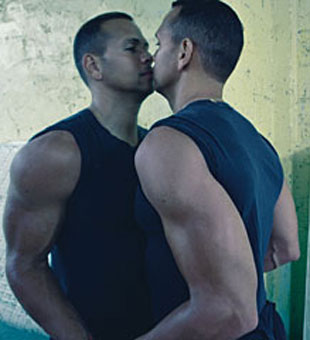
This photo of Alex Rodriguez has nothing to do with Thursday's game against the Oakland Athletics. It's just funny.
Yesterday I tried to be sunny and say three nice things about Major League Baseball. It took less than 24 hours for Alex Rodriguez to bring me back down with his bush league play.
In case you missed it, Yahoo Sports’ Big League Stew summed it up well:
“In the sixth inning of the A's 4-2 victory, Rodriguez went from first to third on a foul ball by Robinson Cano. His trip back to first took him right over the pitcher's mound, an unspoken no-no that ticked [starting pitcher Dallas] Braden off right away.
After a double play ended the inning, the 26-year-old pitcher immediately started yelling at A-Rod — watch it here — who claimed he didn't know he had done anything wrong.”
This isn’t the first time that ARod has broken one of baseball’s unwritten codes. We’ll ignore his admitted steroid use and focus on his transgressions against the game’s etiquette.
My first exposure to Rodriguez’s classless brand of play was during the infamous 2004 American League Championship Series with his New York Yankees leading the series against the Boston Red Sox 3-0. On a routine groundout to the pitcher ARod decided to chop the ball out of Bronson Arroyo’s hand. After some deliberation the umpires ruled him out.
It became a turning point in the series with the Red Sox rallying to an improbable seven-game series victory.
Three seasons later, Rodriguez got into the same kind of shenanigans at Toronto’s Rogers Centre. During an infield fly Rodriguez, circling rounding third, yelled right behind the rookie infielder who had called for the ball. Believing that he was being called off by another Blue Jay, the fielder let the ball fall harmlessly to the ground, allowing the Yankees to score.
Asked about the incident, ARod claimed that he had only yelled in celebration.
My problem with ARod isn’t so much what he does, but how he handles the ensuing criticism. He refuses to accept responsibility.
I don’t mind there being a heel in baseball. In fact, I think it’s one of the best things about Barry Bonds’ entire career. I didn’t like the former Giants slugger, but I could at least admire his willingness to be the villain.
Instead, of Bonds’ unique sense of personal responsibility, we get Rodriguez saying this in reaction to Braden’s blow-up: “He just told me to get off his mound. I was a little surprised. I'd never quite heard that. Especially from a guy that has a handful of wins in his career ... I thought it was pretty funny actually.”
I see ARod’s flaunting of baseball’s social conventions as something akin to taking a run at a goaltender in hockey or flagrantly fouling a star player in basketball. You can do it, but don’t act surprised when they’re upset.
Don’t dismiss their complaints because you have a higher batting average or get more lucrative endorsement deals. Appreciate that if you lack respect for your opponents they’re going to disrespect you. Expect some sort of retribution and take your lumps.
Forget robins, fantasy baseball is the real sign that spring has arrived
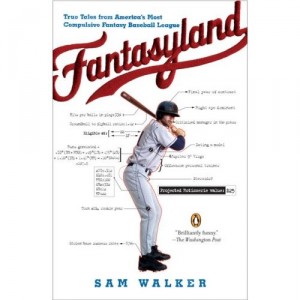 Spring is in the air and so sports fans everywhere are turning their minds to the Boys of Summer, to baseball.
Spring is in the air and so sports fans everywhere are turning their minds to the Boys of Summer, to baseball.
Unfortunately, the Toronto Blue Jays appear to be on the verge of another frustrating season. So I’m focusing on fantasy baseball.
Sure, I still have a seasons pass to all the Jays’ games, but it’s more satisfying to root for teams that I have some measure of control over, teams that won’t have to shed salary or ever let go of Roy Halladay.
Come late August some of my teams should be vying for a playoff spot. I can’t say the same for Toronto.
And I’ve got a lot of opportunities for championships as well – I’m now the commissioner of three leagues, with teams in another three pools.
The breadth and depth of my 2010 fantasy baseball experience will be pretty wide too. I’m in rotisserie leagues, a keeper league, an auction-style draft, an auto-draft as well as some good old fashioned head-to-head scoring.
For anyone who has never participated in fantasy baseball, I highly recommend Sam Walker’s Fantasyland. It’s an excellent introduction to the history and characters of the non-sport.
Walker is the senior special writer and sports columnist for the Wall Street Journal. He decided to give fantasy baseball a try after getting burnt out by the constant allegations of steroid use and exponential growth of salaries in the real-life game.
Taking a sabbatical from his day job, Walker put together a small front office comprised of a NASA statician, a head scout and an astrologer, all in an attempt to best the cream of the fantasy crop in the Tout Wars – a league for the experts who write the websites, magazines and books that the average fan consults.
Spending thousands of dollars on his staff, flights to the Grapefruit League and consulting with the actual players on his team, Walker guides the reader through the world of fantasy baseball.
It’s a really humorous and informative read as Walker takes an unorthodox approach to rekindling his love for America’s pastime.
I’m not as wary of baseball as Walker was, and I’ll never put that much into my fantasy teams. However, I am frustrated with some aspects of baseball, particularly the struggles of my local squad.
Fantasy baseball gives me a forum to follow other corners of Major League Baseball and channel some of my fandom into more fruitful avenues.
For the next two days I’ll be going over fantasy baseball kits and magazines and running mock drafts to try and get a feel for which players I should be taking and when. I’ll be putting together crib sheets and analyzing my opponent’s tendencies.
Opening Day is all about a renewed sense of hope, as all teams start on an equal footing. This year, however, I’ve got seven teams to follow, not just one.
